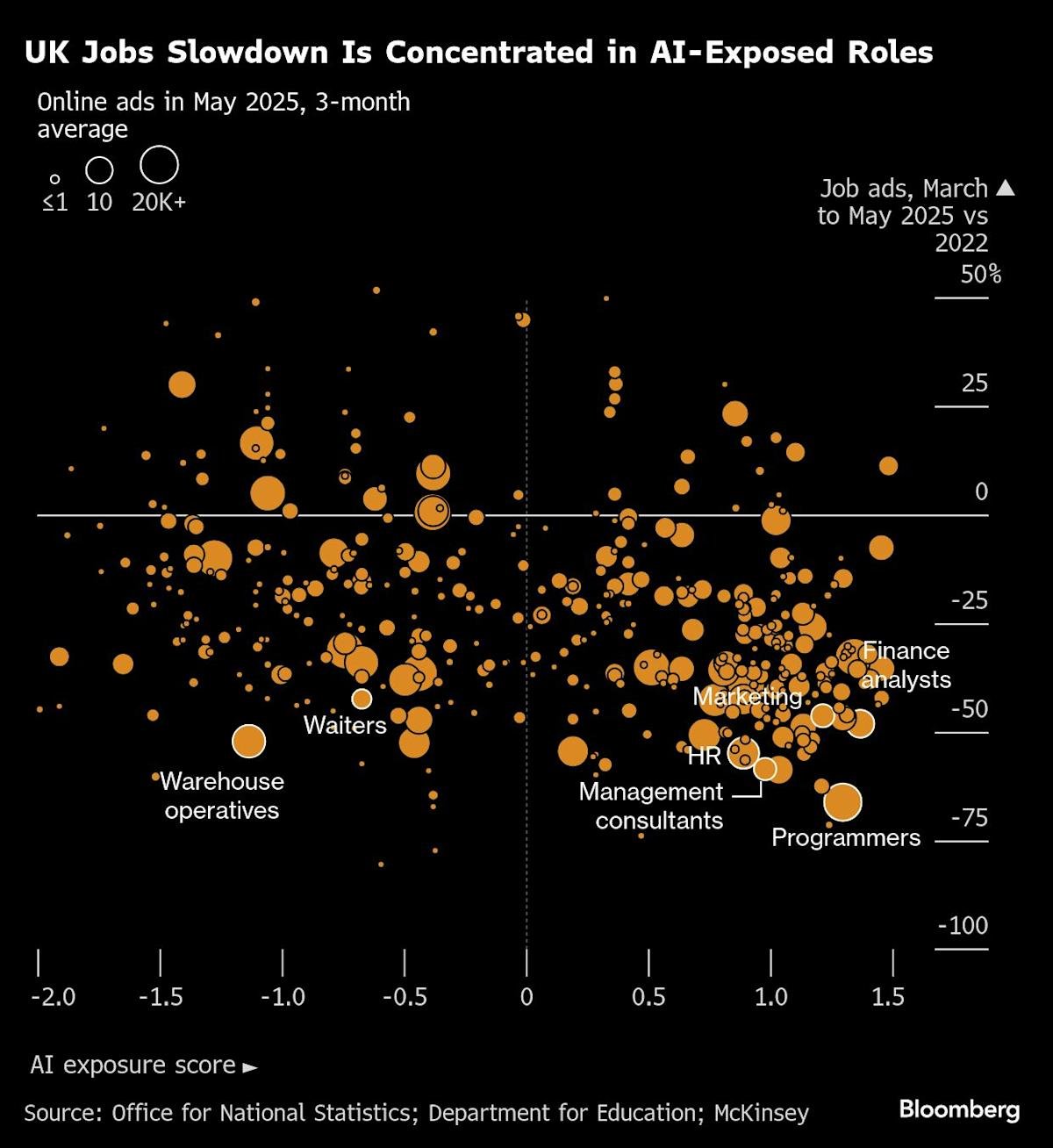(Bloomberg) — UK businesses are dialing back hiring for jobs that are likely to be affected by the rollout of artificial intelligence, a study found, suggesting the new technology is accentuating a slowdown in the nation’s labor market.
Most Read from Bloomberg
Job vacancies have declined across the board in the UK as employers cut costs in the face of sluggish growth and high borrowing rates, with the overall number of online job postings down 31% in the three months to May compared with the same period in 2022, a McKinsey & Co. analysis found.
But it has been the most acute for occupations expected to be significantly altered by AI: Postings for such jobs — like white-collar ones in tech or finance — dropped 38%, almost twice the decline seen elsewhere, according to the consulting firm.
“The anticipation of significant – albeit uncertain – future productivity gains, especially as the technology and its applications mature, is prompting companies to review their workforce strategies and pause aspects of their recruitment,” said Tera Allas, a senior adviser at McKinsey.
The trend appears to be exerting another drag on the UK job market just as tax increases prompt cuts in lower-skilled sectors like retail and hospitality and the pace of economic growth stalls.
Occupations considered to be highly exposed to AI — meaning the technology can replace at least some of the tasks involved — have recorded the sharpest contractions in vacancies, McKinsey’s analysis showed. Demand for jobs such as programmers, management consultants or graphic designers fell more than 50% over the last three years.
Some of that may also be due to industry-specific issues and a challenging macroeconomic backdrop. But McKinsey said in some sectors, like professional services and information technology, the number of job openings dropped even as businesses reported healthy growth rates.
Data shared by job-search website Indeed also indicated early signs that AI is affecting hiring decisions. It showed that employers tend to cut hiring in fields that involve building or using AI tools, according to Pawel Adrjan, director of EMEA economic research at the Indeed Hiring Lab.
For example, vacancies in mathematics, which mainly consist of data science and analytics roles, had the highest share of AI mentions in job descriptions but are down almost 50% from pre-pandemic levels, Indeed figures showed. At the other end of the spectrum, real estate or education jobs that barely mention the technology grew over the period.









